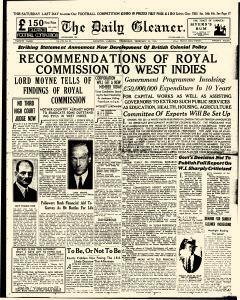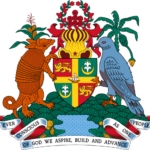Historical Background
The establishment of the Department of Labour is rooted in the 1938 Moyne Commission Report on the social and economic conditions facing workers in the colonies at that time.
The Commission concluded that the workers of Grenada were unprotected and made the following recommendations:
- The enactment of legislation to protect trade unions from actions or damages resulting from strikes
- The enactment of legislation for peaceful picketing
- Compulsory registration of trade unions and audit of funds
- Creation of Departments of Labour
- Establishment of Wages Boards and Industrial Courts for the West Indies
- Adequate Factory inspections
- Legislation for the provision of workmen’s compensation.
The Commission further recommended third party interventions to include consultations, negotiations, conciliation, mediation and arbitration.
Grenada became a member of the International Labour Organization (ILO) in 1979 and has since ratified thirty-four (34) ILO Conventions. On 24th June 1999 the Labour Code collectively the Employment Act, 1999 and the Labour Relations Act, 1999 was enacted.



Legislative Mandate
The statutory responsibilities as enshrined in the Labour Code (Employment & Labour Relations Act, 1999) are as follows:
- Promote the settlement of any differences between employers and employees in accordance with the provision of the Employment Act.
- Advise the Minister on all labour matters and on measures to improve industrial relations generally.
- Encourage the development of tripartism in keeping with ILO Convention 144 (Tripartite Consultation (International Labour Standards) Convention, 1976 and provides advice to employers and trade unions on industrial relations.
- Inspect all workplaces.
- Establish an Employment Agency to facilitate registration of unemployed/underemployed persons.
- Prepare Annual Report on the work of the Ministry, including the Labour Commissioner’s report on the inspection services as provided in the Employment Act no later than the month of April following the year in review.
- Recommend to the Minister policies or the promotion of good industrial relations practices.
- Implement the Foreign Nationals and Commonwealth Citizens Act and the issuance of work permits.

Vision
The leading Public Service organization in the delivery of labour management services.


Mission
To provide labour management services with high ethical and professional standards to all stakeholders.
Core Values
The Department of Labour embraces the following core values as its guiding principles to how we deliver services:
1
Client-focused
2
Integrity
3
Transparency
4
Fairness
5
Accountability
6
Excellence
Statutory Bodies
The Department of Labour is responsible for the administration and effective functioning of two (2) Advisory Bodies which are:
